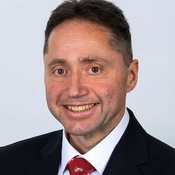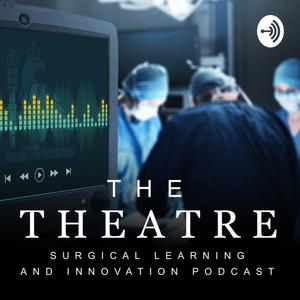Mentoring
SBNS Mentoring Scheme
In 2023 the SBNS set up The SBNS National Mentoring Scheme using the PushFar mentoring platform. This is not what one might consider the traditional surgical mentor relationship but a more focused relationship of support and development that often is just on a short-term basis. This will provide a confidential process with a peer to facilitate career progress, encouragement and a feeling of being valued.
The scheme is open to anyone within neurosurgery. It was initially targeted at junior consultants, but has value for everyone within neurosurgery. Please do sign up and encourage colleagues to sign up as both mentees and mentors. There is online training and support through the PushFar platform. Currently the platform is open for mentees and mentors to approach each other to match, so once registered, approach colleagues through the platform to request a mentoring relationship. If people are reluctant we might start making mentoring suggestions through the platform. In these challenging times, this is a real opportunity for us to support each other as a neurosurgical community.
Why have a Mentoring Scheme?
100% the top 50 Fortune 500 companies have a mentoring programme.
Proven benefits for productivity, retention, satisfaction, inclusion and empowerment with mentoring schemes. This is for both the mentees and mentors taking part.
SBNS Neurosurgical National Survey 2022
The SBNS Neurosurgical National Survey carried out in 2022 revealed:
- 65% felt they had been a victim of bullying, undermining or harassment
- 70% had witnessed bullying, undermining or harassment
- 73% reported feeling uncomfortable about being open/expressing themselves in the workplace
The estimated cost of bullying to NHS is over £2 billion a year!
Burnout (syndrome characterised by emotional exhaustion, depersonalisation and reduced sense of personal accomplishment) experienced by 25% - 57% of neurosurgeons.
High levels of mental health concerns and addiction
Very poor levels of seeking help with these issues in surgeons.
The SBNS Mentoring Scheme was launched by Prof. Ian Kamaly Asl at the SBNS Cork Meeting in 2023

Professor Ian Kamaly Asl
Hospital and region: Royal Manchester Children’s Hospital/Manchester Centre for Clinical Neurosciences
Subspecialty/ies: Paediatric Neurosurgery (Neurooncology and Neurovascular)
Role in SBNS council: Elected member in 2018; appointed lead for tackling bullying, undermining and harassment in 2018, member of the equity, diversity and inclusivity committee, elected
SBNS representative on RCS England Council in 2023.
Other roles: SBNS rep on RCS Eng Council 2023-2027.
Current: SBNS Bully and Mentoring Rep
Clinical lead for paediatric neurosurgery at RMCH.
Member of the Paediatric Neurosciences Clinical Reference Group, since 2013.
Previous:Member of the Joint Committee on Surgical Training SAC in Neurosurgery, 2009-2019.
Secretary of the Neurosurgical National Selection Board, 2011-2014.
National lead for neurosurgical simulation; introduced ST1 boot camp and ran from 2014-2019.
British Paediatric Neurosurgical Group Chairman, 2016-2018.
Member of The NCRI Children’s Cancer and Leukaemia Clinical Studies Group, 2015-2022
Appointed as a Manchester Academic Health Sciences Honorary Chair in 2018
Demographic information: Male, Iranian/British heritage. Married to an academic dermatologist, three children including twins.
What was your journey that lead you to SBNS council?
Throughout my career I have had interests in a variety of areas covering education, research and leadership. After being training programme director for the North Western Deanery I was appointed to the SAC in neurosurgery and undertook work developing the national selection and simulation programmes. From 2013 I was involved in NHS national commissioning through membership of the paediatric neurosciences CRG. I was elected as the BPNG chair in 2016. As part of this role I attended the SBNS council meetings to present paediatric neurosurgery reports and had an opportunity to see how the council works and what an important role the SBNS has in co-ordinating and driving developments within our specialty. I therefore applied to be of the elected council members and was appointed in 2018.
What are your aims/contributions to SBNS council?
My main appointed role in the council is the lead for tackling bullying, undermining and harassment in neurosurgery. Having worked in this role for some years now it is clear how significant a problem this is within neurosurgery and how difficult a problem it is to address. One main initiative to help this issue is the introduction of the SBNS National Mentoring Programme. I’m really pleased that this has been able to be launched and am determined to build this programme to give support to our specialty with the aim of improving the wellbeing for us all.
